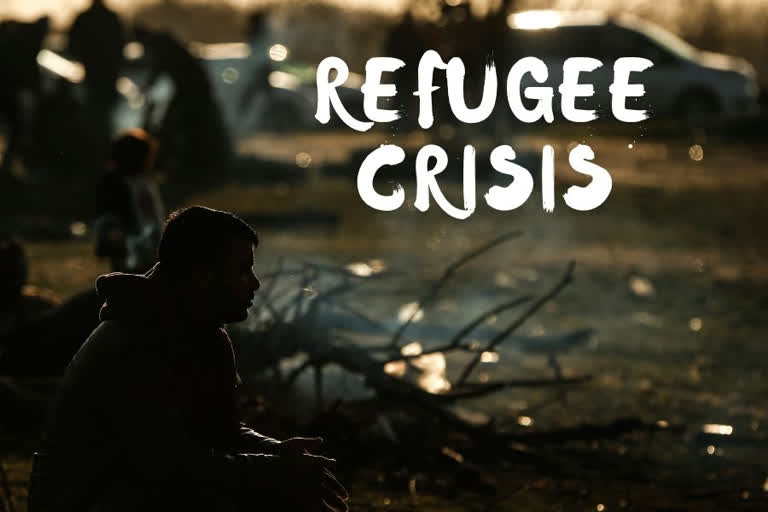Kastanies (Greece): Tide of refugees, an open Greece border and a change in refugee policy in Turkey is imploding the 'refugee problem' at the EU border amidst a raging battle between Turkey and regime forces in Syria.
A child died when a boat full of migrants heading to a Greek island capsized on Monday, part of a wave of thousands trying to push through EU border.
The child's death was the first since neighboring Turkey announced it was easing restrictions on those wishing to cross to Europe, and thousands of migrants began massing at the frontiers with Greece.
Turkey's decision to ease border restrictions came amid a Russia-backed Syrian government offensive into Syria's northwestern Idlib province. That offensive has killed dozens of Turkish troops and led to a surge of nearly a million Syrian civilians fleeing the fighting toward Turkey's sealed border.
Turkey backs the Syrian rebels fighting in Idlib province, and has sent thousands of troops into the area. Idlib is the last opposition-held stronghold in Syria, and is dominated by Al-Qaeda linked fighters.
A Turkish official said the fighting in Idlib was directly linked to Turkey's decision to open the gates for refugees to Europe. He said Ankara had changed its focus to preparing for the possibility of new arrivals from Syria “instead of preventing refugees who intend to migrate to Europe."
Erdogan's decision open his country’s borders with Europe made good on a longstanding threat to let refugees into the continent. His announcement marked a dramatic departure from a previous policy of containment, an apparent attempt to pressure Europe into offering Turkey more support in dealing with the fallout from the Syrian war to its south.
Read: 11 civilians killed in Syria as regime forces re-enter key town
Under a six billion euro deal in 2016, Turkey agreed to stem the tide of refugees to Europe in return for financial aid, after more than a million people entered Europe in 2015. Turkey has since accused the EU of failing to honor the agreement, and Erdogan has frequently threatened to allow refugees into Europe unless more international support was provided.
Turkey already hosts 3.6 million Syrian refugees, as well as many others from Africa, Asia and the Middle East. Turkey borders Greece and Bulgaria, both European Union members.
On the Greek-Turkish land border, Greek army and police patrols using tear gas and stun grenades to thwart attempts by thousands to push into the country overnight.
The United Nations migration organization reported at least 13,000 people had massed on Turkey’s land border till February 29th, the vast majority apparently from Afghanistan.
Existing migrant camps on the islands are already dramatically overcrowded, and tensions there have mounted.
In Syria, fighting escalated on the ground and in the skies between Turkish and Syrian troops. Russia, a key ally of Syrian President Bashar Assad's government, remained largely on the sidelines through the weekend even as a Turkish-led counter offensive blunted and in some cases reversed Syrian government advances.
The crisis in Idlib stems from a Syrian government offensive with Russian military support, which began on December 1. Turkey is worried it might come under renewed international pressure to open its now-sealed border with Syria and offer refuge to hundreds of thousands more Syrian civilians.
(With inputs from AFP)



